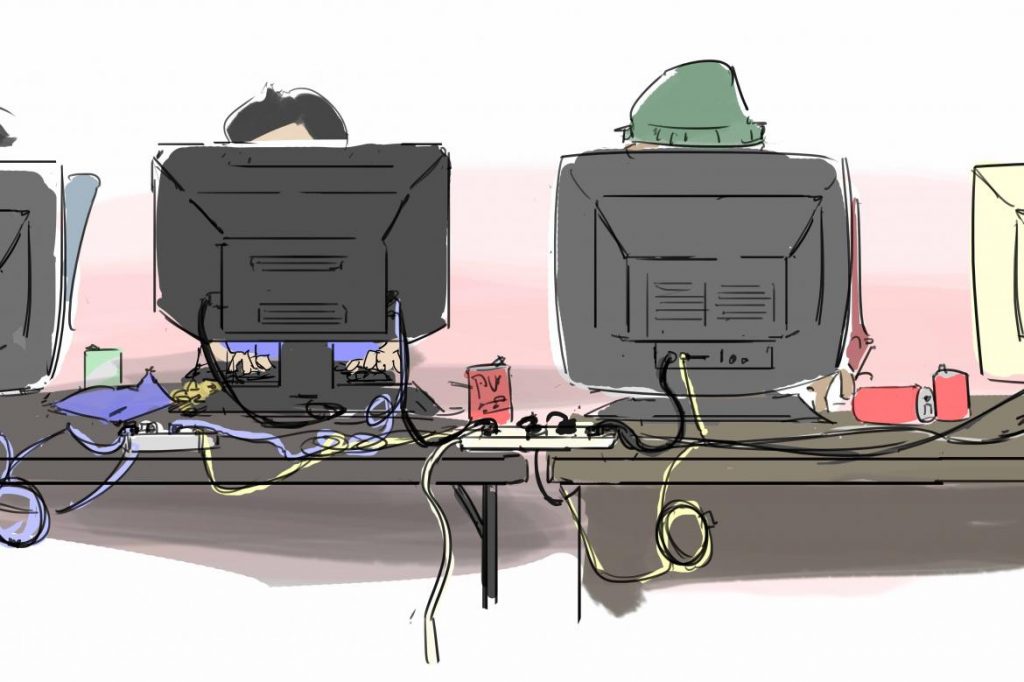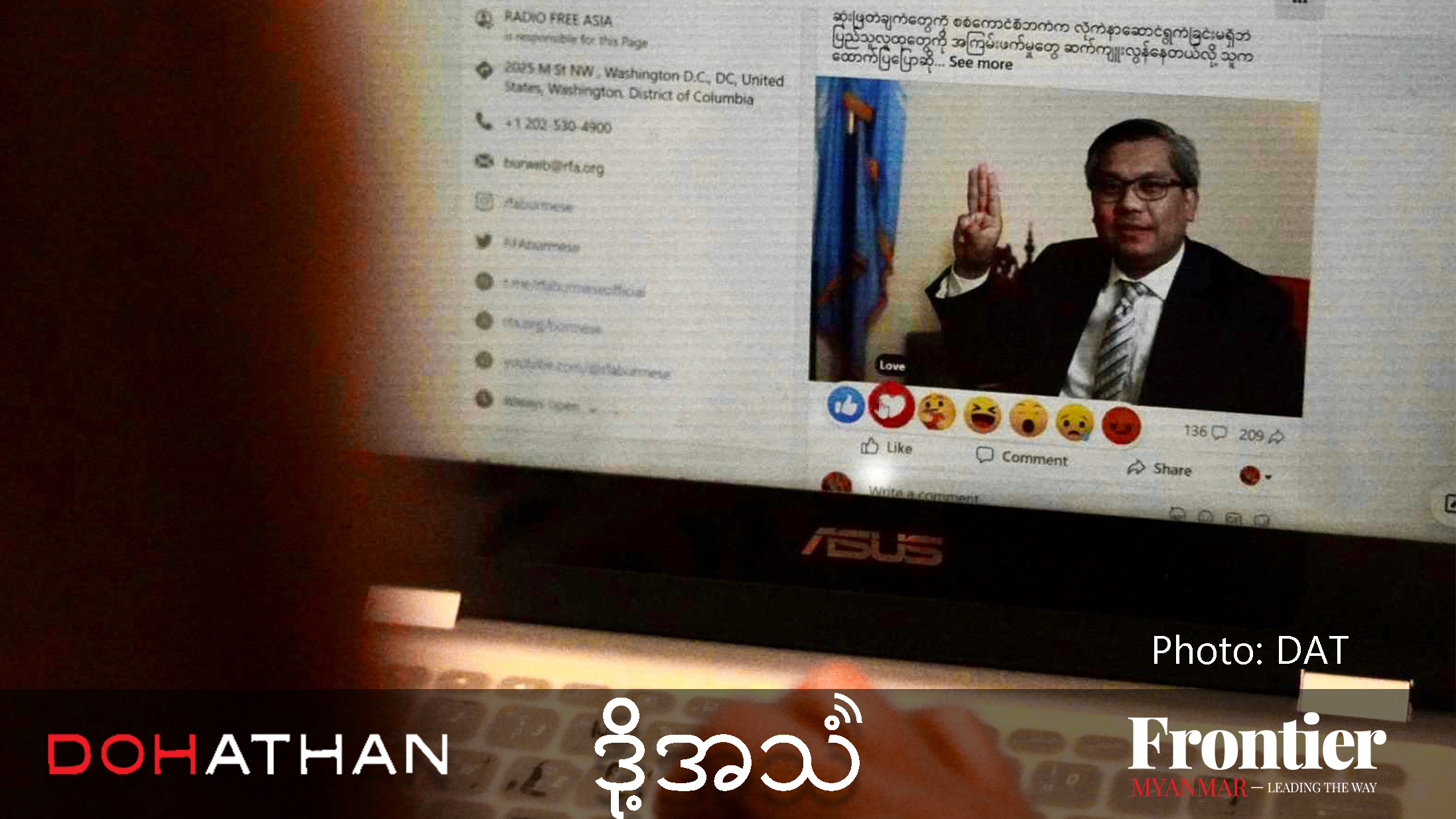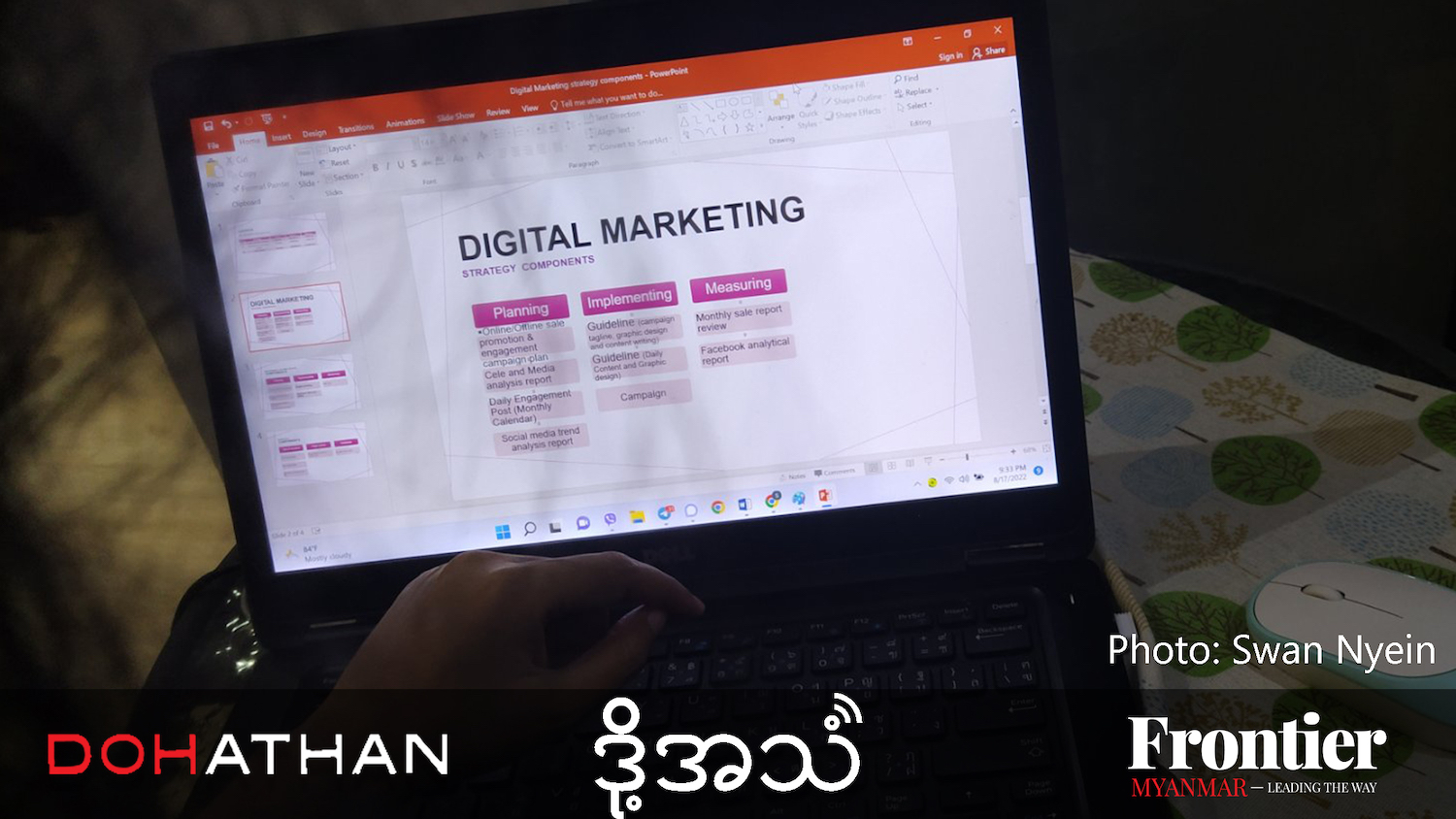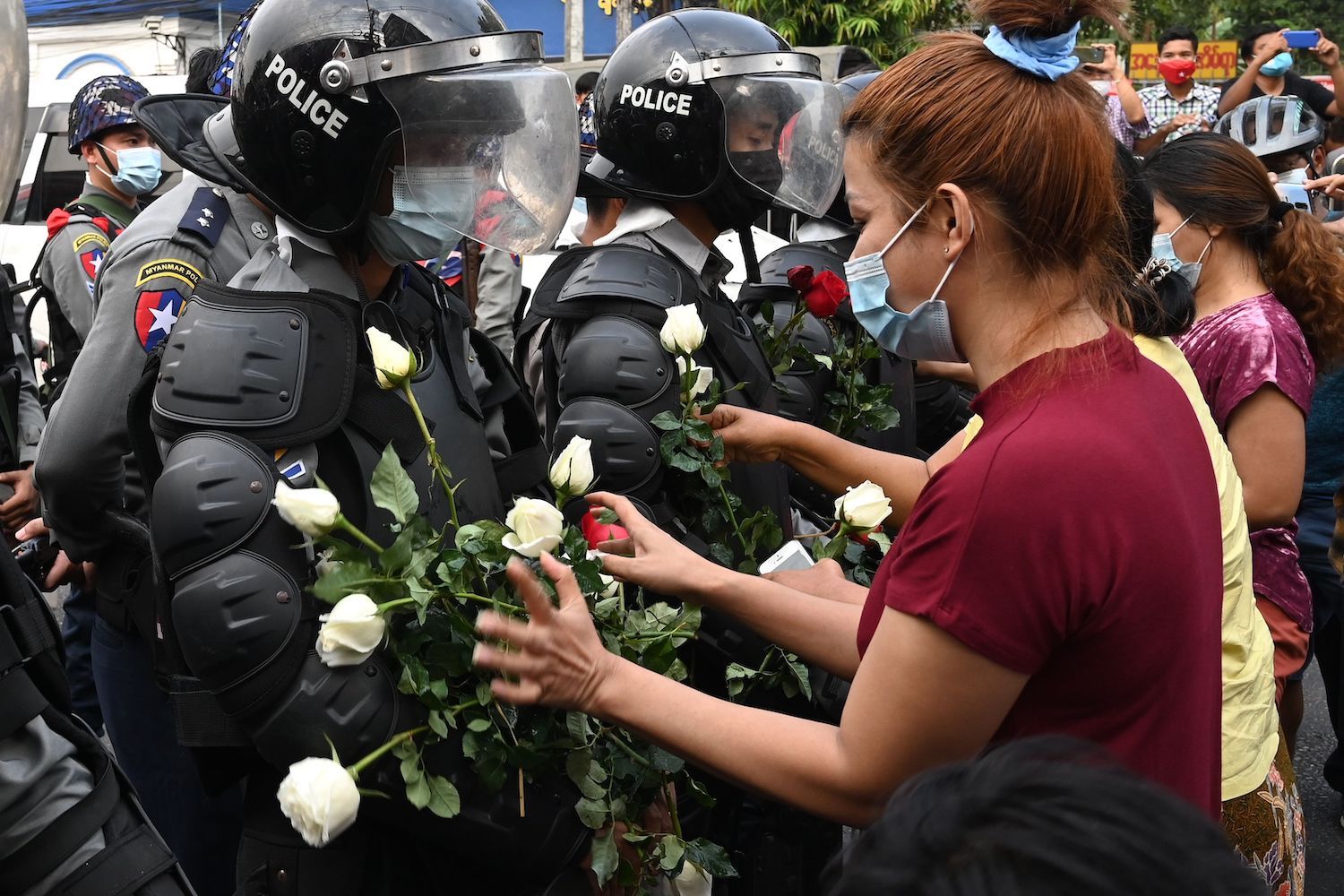By JUSTIN PUN | FRONTIER
When I was at high school in Yangon in the early 2000s, my friends and I would go to one of the city’s many internet cafés whenever time would allow us – after school, at the weekend, during the holidays.
Upon arriving, we would run to whichever computers were available and shout over one another about which game we wanted to play. “Counter Strike!” “Age of Empires!” “What about Red Alert?”
I remember the struggle of trying to connect to each other’s games using the early 21st century LAN routers, praying that the electricity gods would allow the power to stay on for the duration of our games.
Even after getting connected, we would have an agonising few minutes waiting for it to load, during which time there was a very good chance the power would cut out, the café would descend into darkness and we’d have to start the process all over again.
Support more independent journalism like this. Sign up to be a Frontier member.
On the lucky occasions that the power stayed on, my friends and I would spend hours there, surviving on a diet of fried rice, cans of soda and the second-hand smoke that wafted around the café.
Occasionally we would come up for air and rant about some aspect of the game, or snap out of our trance and recognise that there were rats running around our feet. But we would always leave in high spirits, feeling good about the day we had shared together.
Things have changed a little since I was a regular at these haunts. Unlike today’s generation, we weren’t there to use the internet connection to compete with players around the globe. We were only playing alongside one another.
A decade or so later and these places are still thriving in Yangon. How is this possible? More than half of the population now has access to mobile phones, with fast internet (most of the time) at their fingertips. Today the cafés are filled with teenage boys and young men playing games, shouting to one another and surviving on snacks – just like my friends and I did.
And just like my friends, the kids today are shouting updates or warnings to their friends if they spot an opponent. At one café, a man was standing at his station directing his team, like a commander leading his troops into a real-life battle. These places have hardly changed, except for the absence of the smoke and the rats.
I think there are few reasons why they remain popular. Despite the newly improved access to internet and other forms of technology, these places are cheap. Rather than spending hundreds of dollars on a new computer, smartphone or internet connection at home, people can come to the cafés and spend less than K1,000 per hour to use the internet.
But for me, the main reason for the continued popularity is its importance as a social gathering hotspot. Almost no one is there on their own. The gaming culture at these cafés is very much one of friendship and cohesion.
While a lot of gaming today is done online with team-mates, and rivals, in other countries, there is something to be said about playing together in the same room. Some come from work, others from school, but everyone is there to relax and enjoy their friends’ company.
To be honest, it was not what I was expecting. No doubt the dark side of gaming – mainly gambling – is creeping into Myanmar, but that was not something I observed.
All this reporter saw was a bunch of friends, enjoying their hobby together.







